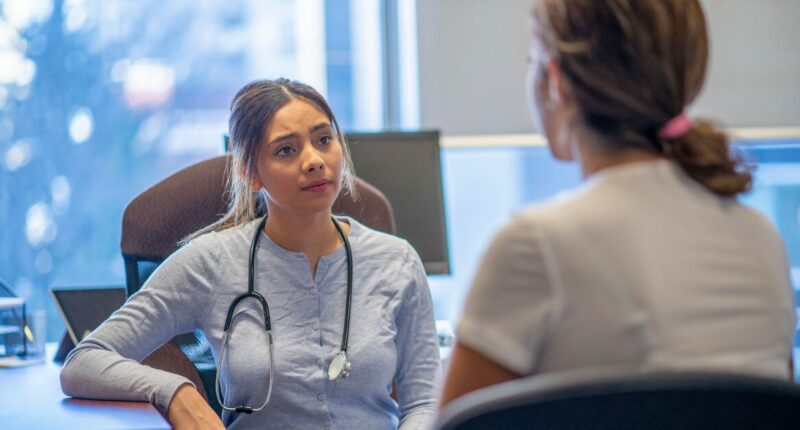Share this @internewscast.com
Would you go to accident and emergency for a minor problem such as travel sickness, acne or conjunctivitis? As crazy as it sounds, thousands of people are doing just that, new research reveals. Despite intense pressure on the NHS, the latest Self-Care Census – the annual survey of consumer attitudes to minor health conditions by the consumer healthcare association PAGB – shows that one in 10 would seek hospital treatment for a minor health complaint.
And what’s even worse is that number is an increase from a year ago – when one in 12 admitted their go-to for treatment was a hospital A&E. The census shows that easy-to-treat issues most likely to prompt a visit to A&E are muscle sprains and strains (6%), issues around the contraceptive pill (6%) and ear infections (5%). Other ailments in the top 10 are allergies such as hayfever, acne, travel sickness, urinary tract infections, haemorrhoids, conjunctivitis and ulcers.
Pharmacist Mark Burdon, an adviser to the PAGB, says: “There will always be grey areas, such as differentiating between a severe muscle sprain and a broken bone. But it’s worrying that so many people still see A&E as their first option for issues that could be treated more quickly and conveniently with over-the-counter products.
“A pharmacy should always be your starting point for minor ailments – we have the expertise and time to advise on the most suitable treatments. If it is something more serious, which requires a GP appointment, we can refer you back to one, so reception knows you need more than self-care.”
And the potential savings for the NHS are enormous. A report by Frontier Economics estimates that every year at least 25 million GP appointments and five million A&E visits are used for self-treatable illnesses – at a cost of £1.7billion to the NHS.
Michelle Riddalls OBE, CEO of the PAGB, adds: “Self-care is an essential pillar of the UK healthcare system. Not only does it empower individuals to manage their minor health conditions independently, but it is also key to reducing strain on primary care services.” So why are so many people going to A&E, or chasing a GP appointment for minor ailments when they could opt for self-care?
MIND THE CONFIDENCE GAP
The 2025 Self-Care Census exposes a curious confidence gap across the generations, with younger adults far more likely to seek a GP appointment for a self-treatable condition than the over-65s.
For instance, almost one in 10 (9%) of those aged 18-24 tried to get a doctor’s appointment for a blocked nose, compared to just 3% of older adults. Younger adults were also three times more likely to try to see a GP for hayfever and other allergies than the over-65s.
One factor for this generational divide is likely to be the trust younger adults place in social media, with two out of five of those aged 25-34 considering it a trusted source. Yet many of these platforms are awash with misinformation, a phenomenon experts have dubbed an “infodemic”.
A paper published last year reported:“The lack of measures to verify accuracy and authenticity has given rise to fringe opinions, disinformation, and misinformation.” And it warned: “Recent research indicates that fake information spreads faster than facts on social media platforms, despite their potential for health education.”
THE RISE OF CYBERCHONDRIA
Pharmacist Mark Burdon, who sees the impact of this misinformation, says: “Another challenge is cyberchondria, or illness anxiety disorder, which is characterised by excessive online searches for health information. This can lead to patients persuading themselves their headache is really a brain tumour, or indigestion is an imminent heart attack.”
As a research review points out: “This pertains to patients presenting frequently with minor complaints.”
And the researchers warn: “Given the increasingly widespread use of the internet and the potential negative effects of online health searches, cyberchondria is likely to represent an increasing public health burden.”
A recent study found that two-thirds of TikTok users look for information on health via social media, and 92% said health content had been pushed into their feed. Just over half said theyhad encountered misinformation on the platform.
The 2025 Self-Care Census confirms that two in five feel overwhelmed by the amount of health information available online, and just under half want to know more about how to spot fake health news and information. On the plus side, the NHS website or app are the go-to for four out of five people searching for health information, and 62% use over-the-counter brand websites for trusted healthcare advice.
EDUCATION, EDUCATION, EDUCATION
“The results from this year’s census provide a very sharp and realreminder that the national messageof self-care has lost momentum since the pandemic,” says Michelle. “There is a disparity in the willingness of consumers to self-care versus the actions that they are taking in reality.”
She adds: “We need to see initiatives such as a national public awareness campaign, delivered at regular intervals, to improve people’s understanding of self-care and the pathways they can take.”
The Self-Care Census also found that younger adults don’t realise pharmacies provide the most speedy and accessible frontline care, with two-thirds of those aged 18-24 being referred to a pharmacist when they have tried to book a GP appointment or dialled NHS 111 for help. Mark points out: “Pharmacy services deliver care closer to home, helpingto reduce unnecessary GP andhospital attendances.
“They also offer an important reminder that self-care doesn’t have to be practised in isolation – it may also involve support andadvice from others, such as expert pharmacy teams.”
ACCESS NOT ALL AREAS
Pharmacy closures are also forcing patients to GP surgeries and A&E, with 15% of those surveyed saying a pharmacy close to them had closed in the past 12 months, and 59% of those impacted reporting it’s getting harder to access advice. As a result, a third of those impacted by pharmacy closures say they now go to their GP instead.
But the report also points to one simple solution to ease pressure on the NHS, with 49% of consumers saying they would have more trust in a website or online resource if it came with a recommendation via the NHS website or app.
Four in five said that they would be more likely to use an accredited website if it included a self-care section with a symptom checker and information on over-the-counter remedies, and half said this would probably help toreduce their visits to a GP or other healthcare provider.













